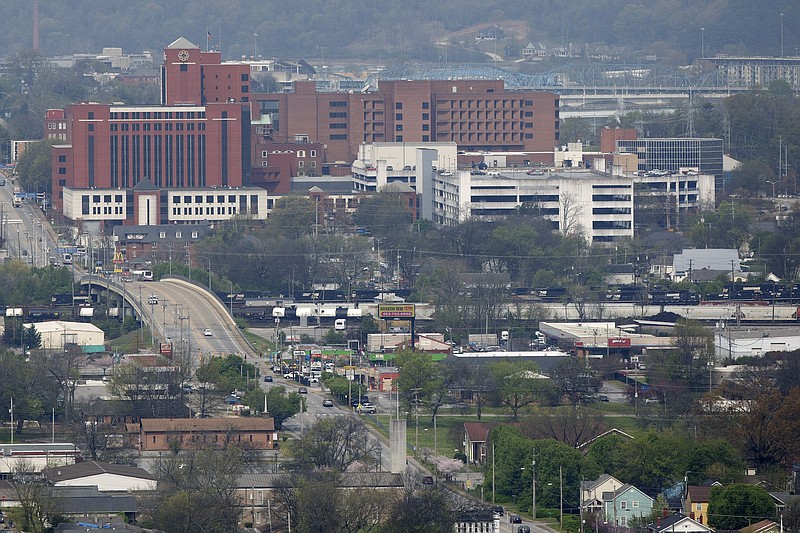Erlanger Health System leadership revealed the most ambitious budget for the hospital in recent years on Monday, projecting a net income of $20 million and plans to invest $37 million in capital in the 2022 fiscal year, which will start July 1.
Erlanger ended fiscal year 2020 with a $30.2 million net income. Those earnings were due in part to $55.9 million in federal COVID-19 relief funds meant to offset the costs of the pandemic.
The health system's financial performance throughout the 2021 fiscal year has been strong so far, and Erlanger has an additional $25 million in relief funds at its disposal to use before the year ends on June 30. In the new year, Erlanger must continue to grapple with the ongoing COVID-19 crisis, and no additional relief funds are expected.
"We're going to have to execute without any additional monies," Erlanger CEO Dr. William Jackson said during a budget and finance committee for the Erlanger Board of Trustees Monday evening, where he presented the 2022 budget plan. "In that sense, a [more than 2%] bottom line operating margin is ambitious for where a public safety net hospital system like we are sits. There's no question about it."
While he said he's thankful for those funds, Jackson said Erlanger's improved financial position is not a result of COVID-19 relief money.
"I think a lot of what we've tried to accomplish in terms of refining our expense base, given the business realities, started to benefit us before COVID ever came into play," Jackson said. " When you look at [the relief fund] methodology, and you look at our baseline of uncompensated care, I don't feel compelled to apologize for it. We've had drops in our revenue and increases in our expenses that those monies were meant to offset, and we've applied them in accordance with those guidelines."
Erlanger officials estimated last year that the hospital lost $35 million in net patient revenue in April 2020 alone and is projecting uncompensated care costs around $160 million in the next fiscal year.
When Jackson took over Erlanger leadership in 2019, the health system finished the fiscal year with a $4.4 million net loss. In 2018, Erlanger ended the year with a modest $500,000 income.
In 2020, Erlanger was able to allocate $20 million toward capital despite receiving $75 million worth of needed requests from across the health system. This year's $37 million will be allocated to upgrade Erlanger's infrastructure, purchase new equipment and upgrade its information technology.
In an internal statement shared with Erlanger employees after the meeting, officials said "Erlanger's budget is only possible due to the focused and diligent work accomplished by physicians and staff throughout the pandemic. The teamwork and sacrifices made by everyone across the health system have built a foundation whereby Erlanger can continue to provide exceptional care while maintaining a healthy financial outlook."
Several challenges and risks for the budget include continued pandemic expenses, a tight labor market and growing labor and drug costs.
"We need to continue to grow and recognize the industry realities to be successful and to survive," Jackson said. "Nonetheless, again, growth is not our primary endeavor - it's to deliver high quality, safe care in a way that respects our associates and the patients that we take care of."
Contact Elizabeth Fite at efite@timesfreepress.com or follow her on Twitter @ecfite.
